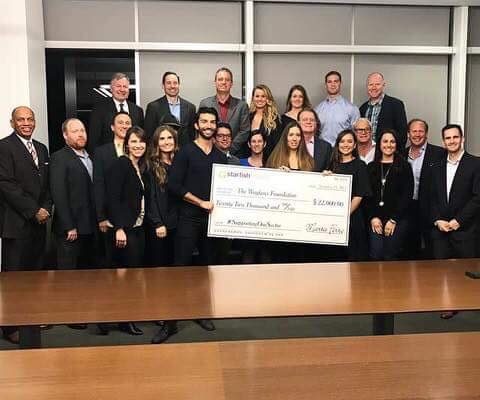Recently, I wrote about how nonprofits need to adapt to a social sector that is undergoing some fundamental transformations. I argued that given these changes, nonprofits must move away from the scarcity mindset, and create a leadership team and board structure that focuses on outcomes, what it costs to achieve those outcomes, and how they will develop a funding model to secure the necessary resources. But it is not just nonprofits that need to adapt, funders and donors need to change their approach as well in order to achieve the impact they want to see in the world.
The philanthropic landscape has also shifted dramatically over the past decade. Some of the factors impacting philanthropy include:
- The rise of a whole new class of donors who eschew traditional philanthropy and are creating new and innovative ways to invest in social outcomes.
- Impact Investing has grown into a wholesale movement that is pushing traditional philanthropy to develop new ways of working.
- The rise of hybrids, B corps, and social enterprises means funders need to look beyond traditional 501(C)3’s in their grantmaking and investing strategies.
- Pay-for-Success and Social Impact Bonds are moving risk from funders to nonprofits – presenting grantees with a new set of challenges and possible risks.
- The advent of big data and a push for social outcomes measurement may represent a huge potential for the sector but it is going to cost money to implement and to do it right.
- The flood of big money is threatening to drown out the voices of philanthropy and those who lack the resources to compete.
Not to mention demographic shifts, political uncertainty, the continued increase in the number of nonprofits and private foundations, and the growth of regional and collective impact initiatives.
Social sector leaders are tackling some of the most difficult, multi-faceted, and systemic challenges in our society. As Paul Shoemaker writes in Can’t Not Do, “The problems are complex, the politics murky, and the players innumerable.” Our solutions need to rise to the challenge. Our solutions need to equip organizations with the capacity, resources and human capital for a sustained and hard fight. If hunger and poverty and injustice are not going to end today, then our for-purpose organizations need to be around tomorrow and to be there until there is no longer a need for their work.
Are you still giving like its 1999?
Yet far too many donors and funders still use a short-term, go-it-alone and program-specific approach to grantmaking. If your grantmaking strategy is still based in a world with Blockbuster Video and MySpace, how will you and your grantees remain relevant? If your funding policies were developed in a world before Twitter, Impact Investing, and Citizen’s United, how will you realize the change you want to see in the world?
The good news is that these changes don’t require changing laws or government regulations; they won’t require statewide referendums. There is no law that requires funders to limit overhead rates. There are no tax penalties if funders provide general operating support. And according to a recent study from the Grantmakers for Effective Organizations (GEO), only one-quarter of foundations even have a written policy regarding support for indirect costs. This means that most grantmakers may have discretion when it comes to covering the true costs of a project. But it also means that decisions about what is ‘indirect’ and how much to fund are left to individual program officers without the necessary capacity, skills, or training to evaluate the full cost of program delivery. In fact, according to the GEO study, almost two-thirds of grantmakers reported that they make decisions about allowable overhead costs on a case-by-case basis. This inconsistent and confusing approach is not a path to sustainability or impact.
What it will take is for both grantmakers and grantees to change how they think. We need a mindset that focuses on long-term financial health and impact because the issues we are tackling will not be solved in the span of a 1-year grant. We need to build a culture of sustainability because we will not achieve real impact by starving organizations, underpaying and overworking staff, and ignoring our infrastructure needs. Changing our beliefs and our culture is not easy; it will take time. But we can start with some simple steps to get us moving in the right direction:
- Talk to Your Grantees. Engage in honest conversations about what does it really take them to create impact. Understand both their programmatic as well as their business needs. Ask how you can best support them to drive social change.
- Provide Flexible Real Cost Funding: Once you have identified the right nonprofit for the job, let them decide how best to use your funding to achieve the end goal. Unrestricted does not mean unaccountable.
- Right-size Your Expectations: If you are not in a position to provide unrestricted funding, then recognize what your grant is really paying for and right-size what outcomes you expect. You can’t expect $100K of outcomes for a $50K grant.
- Build Cultures of Sustainability with Grantees. Encourage practices that support long-term financial sustainability such as full-cost budgeting, maintaining proper liquidity, building reserves and investing in staff and infrastructure.
- Long-term Funding: Short-term, one-year grants are a very expensive and inefficient way to distribute resources. It doesn’t allow the nonprofit the time to plan for the long-term or implement real change. Long-term problems mean a sustained effort in order to achieve success.
If we want to increase the impact of philanthropy, we need a new approach to grantmaking. After all, we all know that “doing the same thing over and over again and expecting different results” is by definition, insanity. Changing the culture and our mindset is possible. It was not all that long ago when smoking on airplanes, in bars and in restaurants was considered the norm and no one thought any differently. But try lighting a cigarette in your next board meeting and see what happens! While grantmakers may represent a relatively small part of the nonprofit funding landscape, they have an outsized leadership role. If foundation leaders start to change how they behave, change how they think about full costs and outcomes, and implement new approaches, there will be a ripple effect that may fundamentally change the entire funding system for social sector organizations. And make no mistake, this ripple effect has the potential to catalyze the growth and expand for-purpose organizations’ power to change the world.


